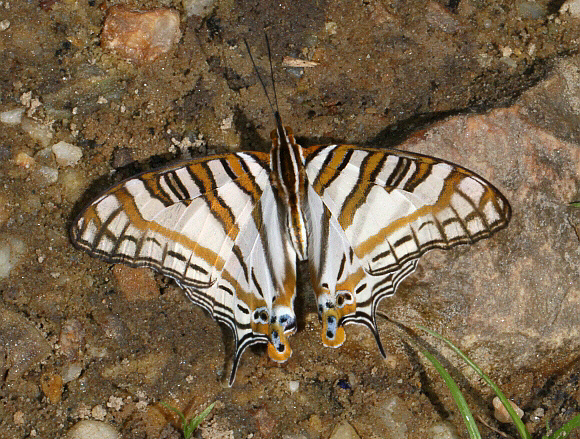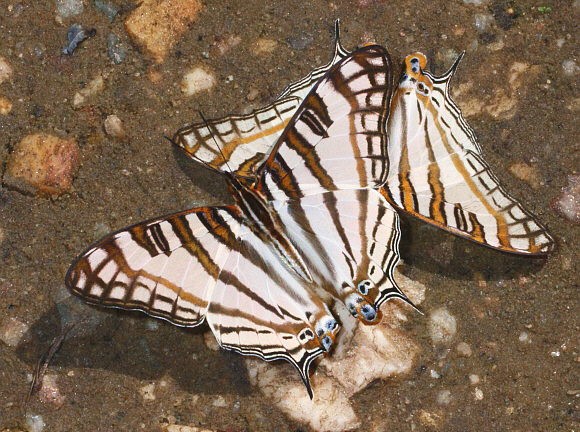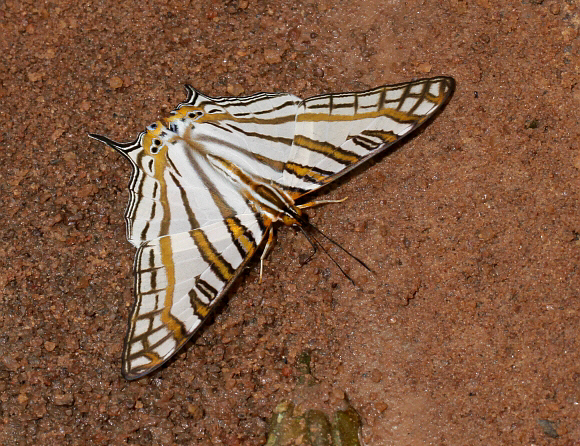
Introduction
The genus Cyrestis comprises of 25 species, of which 17 occur in the Oriental region, while most of the remainder are found variously from India to Papua New Guinea and the Solomon islands. In the Afrotropical region there is a single species camillus.
All Cyrestis species are white, marked with a series of vertical black lines. Most possess a tail on the hindwing, and an anal lobe. Unlike most butterflies, they habitually rest beneath leaves with their wings fully outspread, in the manner of Geometrid moths.
Cyrestis camillus is found throughout the forested regions of sub-Saharan Africa, except for South Africa; and also occurs on Madagascar.
Habitats
This species is normally seen in open sunlit forest areas, and is more abundant in secondary forest than in undisturbed rainforest. It is commonly found in the vicinity of forest villages.
Lifecycle
The larval foodplants include Morus, Antiaris, Chlorophora, Ficus (Moraceae). Larvae have also been found on Zizyphus (Rhamnaceae).

Adult behaviour
Both sexes have a graceful flight, weaving and gliding in circles low over the ground along forest roads. They frequently fly to nearby bushes and trees, where they settle under leaves, always keeping their wings fully outspread.
Males can often be seen imbibing mineralised moisture from damp soil. They are strongly attracted to urine and can sometimes be found imbibing at seepages around village houses.

